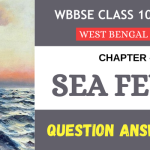Narration questions are vital for understanding how to transform direct and indirect speech, improve communication, and master grammar. This comprehensive guide provides detailed questions and answers across all subjects to ensure clarity and practice in narration. It is ideal for learners, educators, and those preparing for exams.
Narration in English Grammar
Question What is narration in English grammar?
Answer Narration is the way a speaker conveys the words spoken by someone else, either in direct or indirect speech.
Question What is direct speech?
Answer Direct speech involves quoting the exact words of the speaker, enclosed in quotation marks.
Question What is indirect speech?
Answer Indirect speech involves reporting what someone said without quoting their exact words, often changing pronouns and verb tenses.
Question What is the rule for changing pronouns in narration?
Answer Pronouns in reported speech change according to the subject and object of the reporting verb.
Question How do you change the tense in indirect speech?
Answer The tense of the verb in indirect speech usually shifts back one step unless the reporting verb is in the present or future tense.
Question Give an example of changing present simple to indirect speech.
Answer “He says, ‘I play football.'” changes to “He says that he plays football.”
Question What are reporting verbs?
Answer Reporting verbs, such as “said” or “told,” introduce the reported speech and connect it to the speaker’s words.
Question What is the role of conjunctions in indirect speech?
Answer Conjunctions like “that,” “if,” or “whether” connect the reporting verb with the reported speech.
Question What happens to time expressions in indirect speech?
Answer Time expressions often change, for example, “today” becomes “that day,” and “tomorrow” becomes “the next day.”
Question How do questions change in narration?
Answer Question forms change to statement forms, and “if” or “whether” is used for yes/no questions in indirect speech.
Question How do commands and requests change in narration?
Answer Commands and requests are expressed using verbs like “told” or “requested” and use the infinitive form of the verb.
Question Give an example of changing a question to indirect speech.
Answer “He asked, ‘Where do you live?'” changes to “He asked where I lived.”
Question How do exclamations change in narration?
Answer Exclamations are reported using verbs like “exclaimed” or “cried,” and the exclamation is turned into a statement.
Question Give an example of changing an exclamation to indirect speech.
Answer “She said, ‘What a beautiful day!'” changes to “She exclaimed that it was a beautiful day.”
Question How do modal verbs change in narration?
Answer Modal verbs like “will” change to “would,” “can” to “could,” and “shall” to “should” in indirect speech.
Question What happens to universal truths in narration?
Answer Universal truths remain in the present tense in indirect speech, even if the reporting verb is in the past tense.
Question How do you report an imperative sentence?
Answer An imperative sentence is reported using verbs like “ordered,” “advised,” or “requested” followed by the infinitive verb form.
Question What is the difference between “told” and “said” in narration?
Answer “Told” is followed by a person, while “said” is not directly followed by a person unless it is in indirect speech.
Question How do you report mixed tenses in a sentence?
Answer Each clause of the reported speech changes tense according to the rule of backshifting unless it is a universal truth.
Narration in Science
Question How is narration used in scientific explanations?
Answer Narration helps convey observations and results clearly by quoting or paraphrasing findings and explanations.
Question What is the importance of tense in scientific narration?
Answer Present tense is used for universal truths, while past tense is used for experiments and observations.
Question How do scientists report findings in narration?
Answer Findings are often paraphrased in indirect speech to summarize the data and conclusions.
Question How do you narrate a hypothesis?
Answer A hypothesis is stated directly as a possibility and tested indirectly using evidence.
Question How is direct speech used in scientific presentations?
Answer Direct speech is used for quoting famous scientists or significant findings verbatim.
Question Give an example of narrating an experiment.
Answer “The scientist said, ‘We observed rapid growth in the sample.'” changes to “The scientist reported that they observed rapid growth in the sample.”
Question How do indirect speech rules apply to equations?
Answer Equations are not altered but are introduced with phrases like “It is stated that.”
Question How is narration used in describing processes?
Answer Narration explains processes step by step, paraphrasing instructions or findings.
Question How do time expressions apply to scientific narration?
Answer Time expressions are crucial for reporting chronological observations, often shifted in indirect narration.
Question How do scientists narrate results in journals?
Answer Results are paraphrased to provide clear and concise summaries of findings in indirect speech.
Question What role do modal verbs play in scientific narration?
Answer Modal verbs like “can” or “must” indicate possibilities or necessities in explanations.
Question How do you narrate a scientific quote?
Answer Quotes are introduced with verbs like “stated,” “mentioned,” or “reported” for clarity.
Question What is the use of “if” in scientific narration?
Answer “If” is used to introduce conditions or hypotheses in reported speech.
Question How do scientists narrate future predictions?
Answer Future predictions use modal verbs like “will” or “might,” and shift accordingly in indirect speech.
Question What is the role of conjunctions in scientific narration?
Answer Conjunctions link observations, hypotheses, and conclusions in a logical flow.
Question How do you narrate a comparison in science?
Answer Comparisons are paraphrased using phrases like “It was observed that.”
Question How do you report results from different studies?
Answer Results from studies are paraphrased using indirect narration for clarity.
Question How is narration helpful in explaining graphs?
Answer Narration describes trends and findings shown in graphs by summarizing key points.
Question What are common challenges in scientific narration?
Answer Ensuring accuracy while paraphrasing complex data is a common challenge in scientific narration.
Narration in History
Question How is narration used in history?
Answer Narration conveys historical events, speeches, and facts by quoting or paraphrasing sources.
Question How do you narrate a historical speech?
Answer Historical speeches are paraphrased using indirect speech while preserving their original meaning.
Question How do historians report events?
Answer Events are narrated chronologically, often using past tense and indirect speech.
Question How do you narrate a treaty or agreement?
Answer Treaties are paraphrased to explain terms and conditions in indirect speech.
Question What is the role of direct speech in history?
Answer Direct speech is used for quoting significant declarations, speeches, or dialogues verbatim.
Question How do historians narrate causes and effects?
Answer Causes and effects are explained using paraphrased summaries in indirect speech.
Question How do you narrate a historical debate?
Answer Debates are summarized by paraphrasing arguments presented by each side.
Question How do time expressions apply to historical narration?
Answer Time expressions are crucial for placing events in their correct historical context.
Question How do historians narrate conflicting accounts?
Answer Conflicting accounts are paraphrased to present multiple perspectives without bias.
Question How do you narrate an eyewitness account?
Answer Eyewitness accounts are reported in indirect speech while maintaining their original essence.
Question What is the role of conjunctions in historical narration?
Answer Conjunctions link events, causes, and effects in a coherent manner.
Question How do you narrate a historical comparison?
Answer Historical comparisons are explained using paraphrased summaries and indirect narration.
Question How do historians narrate wars?
Answer Wars are narrated using chronological details, paraphrasing strategies, and outcomes.
Question How do you narrate a significant discovery in history?
Answer Discoveries are paraphrased to highlight their importance and impact on history.
Question How do historians narrate cultural changes?
Answer Cultural changes are explained by paraphrasing key factors and influences.
Question How is narration used in explaining revolutions?
Answer Revolutions are narrated by summarizing causes, events, and consequences in indirect speech.
Question How do you narrate the role of leaders in history?
Answer Leaders’ roles are explained using paraphrased accounts of their actions and speeches.
Question How do historians narrate reforms?
Answer Reforms are paraphrased to summarize their objectives, implementation, and effects.
Question How do you narrate historical quotes?
Answer Historical quotes are introduced with reporting verbs like “stated” or “declared” for clarity.
Narration questions across subjects enhance understanding and clarity in communication. From grammar rules to historical analysis, mastering narration ensures effective expression. Practice and understanding will improve your skills and help you excel in exams or everyday communication.
Latest Posts
- Step-by-step guide to download and apply for jee mains admit card 202
- Comprehensive 2025 government holidays and recruitment details for job seekers
- JEE Mains Admit Card 2025: Your Step-by-Step Guide to Downloading the Hall Ticket
- Everything You Need to Know About 2025 Government Holidays Recruitment
- Comprehensive Guide to rrb d group recruitment 2025 – Eligibility, Vacancies, and Application
- Detailed guide to nps trust recruitment 2025 vacancies, eligibility and apply process
- Comprehensive guide to hpcl recruitment 2025 notification, vacancies, and application process
- ignou bed admission 2025 complete recruitment guide with eligibility and process
- Comprehensive Guide to Indian Army Agniveer Recruitment 2025 Notification and Jobs
- Everything You Must Know About CBSE Board Exams 2025 Changes & New Rules






